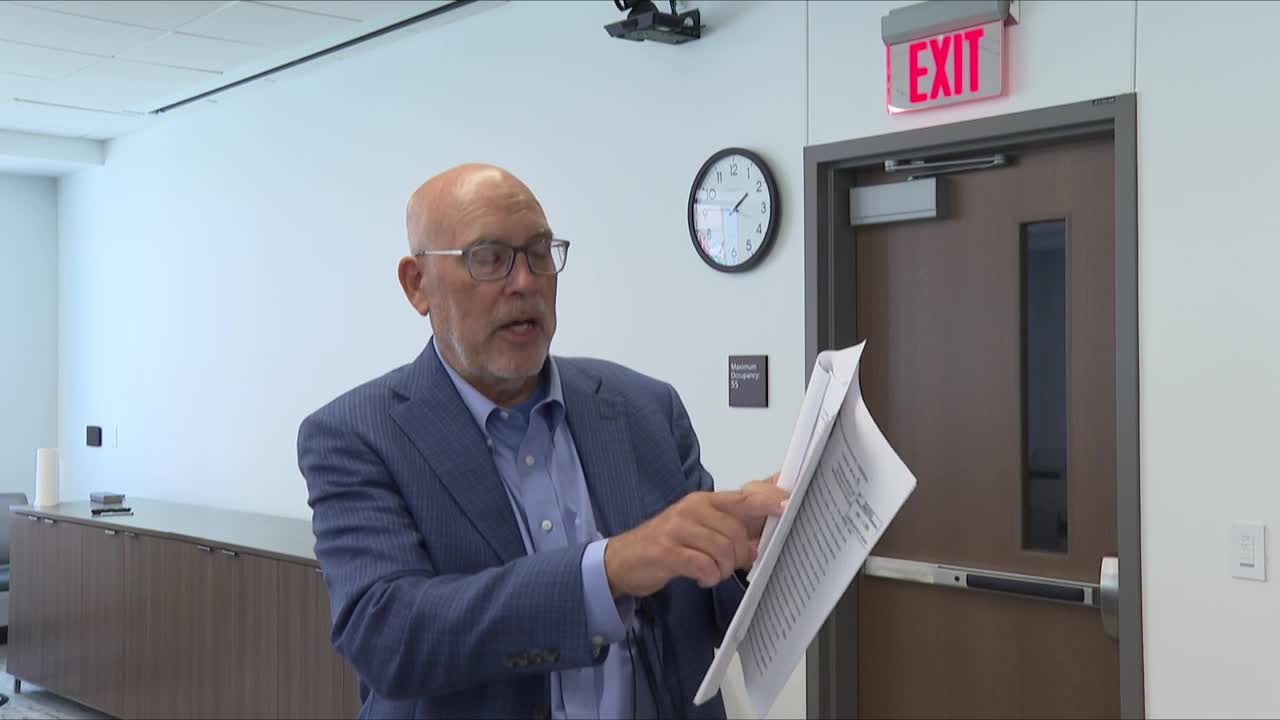Douglas County Clerk of District Court Crystal Rhoades is raising serious concerns about how mental health cases are being handled in the county, claiming that hundreds of individuals are being denied their legal rights.
In multiple letters sent to the Douglas County Board of Mental Health, Rhoades alleges that her staff has been prohibited from attending hearings and taking minutes, which she believes violates proper procedures.
According to her letters, from January to July 2025, only 11 out of 473 people detained by warrants had their court hearings within the required seven-day timeframe mandated by statute.
"You can't just accuse someone of being mentally ill and then not give them an opportunity to prove that they aren't in fact, mentally ill or that they have been sufficiently stabilized," Rhoades said.
The dispute highlights tensions between county officials over the handling of sensitive mental health proceedings that determine whether individuals should be involuntarily committed for treatment.
Mental Health Board Chair Michael McClellan disputes Rhoades' claims, saying they have no merit. He explained that hearings are confidential and often held in private treatment facilities where the clerk's staff aren't permitted.
"They have the right to make that attempt at voluntary treatment. That's the whole purpose of this law, and that's why it's set up the way it is. Providers have input on when hearings are scheduled," said McCellan. "They'd rather have a psychiatrist or an inpatient facility determine whether they should be involuntarily committed on a certain date, rather than the clerk of the court," McClellan continued.
County Attorney Don Kleine defended the current system, emphasizing that multiple parties oversee these cases, including prosecutors, defense attorneys, doctors, and judges.
"Everybody that appears before the board of mental health has a lawyer or they have a right to a lawyer. The board hears it and then the courts actually oversee it," Kleine said.
Kleine also called Rhoades' accusations about dismissing and continuing hearings indefinitely "misleading."
"She's not a party to these cases, and what happens at the board is very confidential, so sometimes it may be continued 90 days the person does what they're supposed to do, they voluntarily get the help that they need they're on their meds and the doctors say we don't need to pursue this any further before the board and so it's dismissed. It's as simple as that," Kleine said.
Rhoades has also raised concerns about rising court fees and the board's preference for holding hearings for continuances instead of filing written motions, which she claims increases costs unnecessarily.
This story was reported on-air by a journalist and has been converted to this platform with the assistance of AI. Our editorial team verifies all reporting on all platforms for fairness and accuracy.
Download our apps today for all of our latest coverage.
Get the latest news and weather delivered straight to your inbox.




